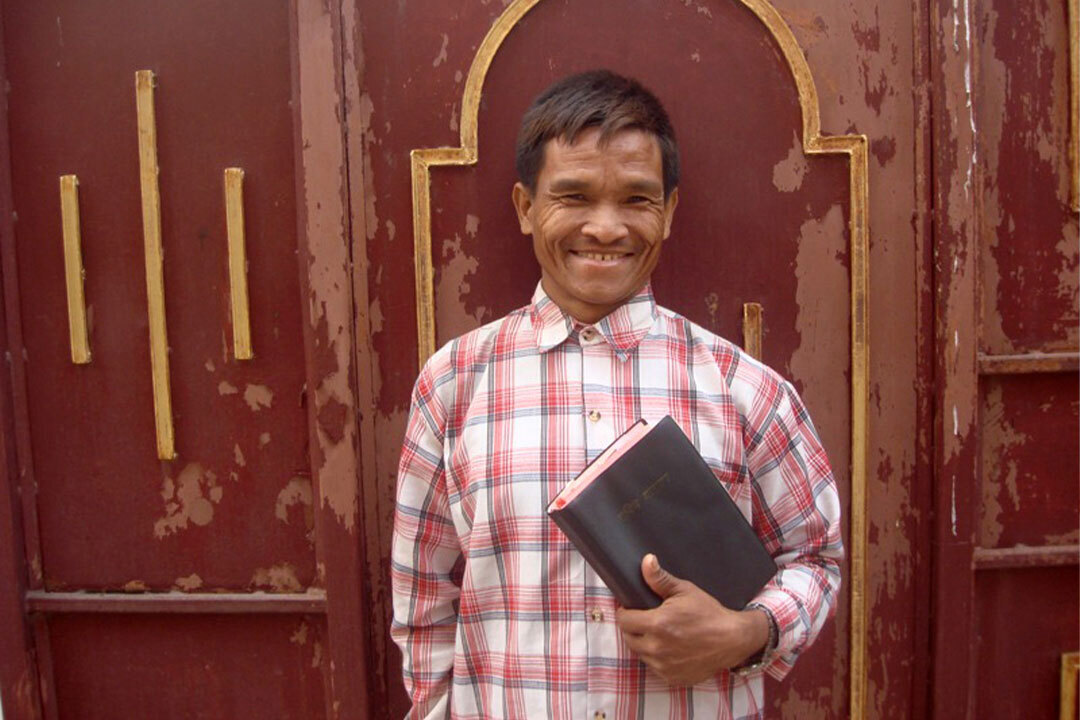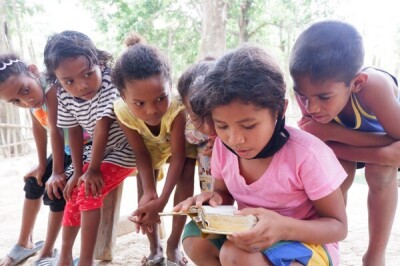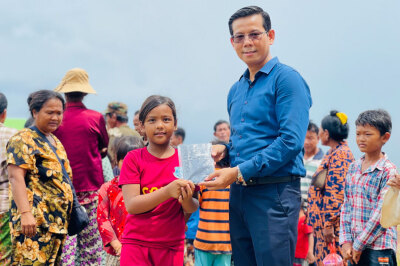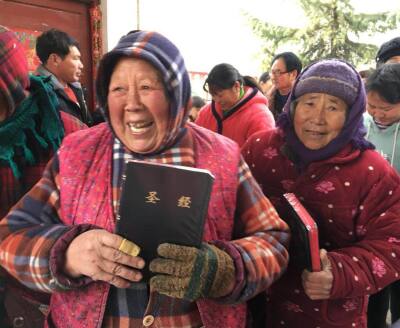
Christmas Is a Day for Missions
It will soon be that time of year when Christmas decorations fill the stores and Bing Crosby fills the air. But even as Christmas cheer abounds, many of us relate to Charlie Brown, mourning the commercialization of Christmas and how little Christ seems to show up in most celebrations.
At least, that’s the way it is here in the U.S. As we lament how Americans have forgotten the reason for the season, some people have never heard the story of Christmas.
Believe it or not, Christmas hasn’t made it everywhere yet.
Who hasn’t heard the Christmas story?
In the early 1970s, P. G. and Lilly Vargis were in Kashmir in northern India, where P. G. was stationed at an army base. One evening, they were out on a walk, and P. G. looked up at the mountainside and saw cooking fires in the villages dotting the lower slopes of the Himalayas.

He turned to Lilly and said, “Do you see those fires? There must be seventy of them we can see from here, and for every fire, there is a family of at least five, seven, or ten people. We are going to celebrate Christmas next week, but the people there on those mountains have never even heard that there was a Christmas!”
There are at least two dozen small tribes or people groups in that part of India that are almost entirely cut off from Christianity — and from Christmas.
Across India, more than 2,000 people groups have little or no Christian presence among them. Globally, more than 7,000 people groups are considered “unreached”, never hearing the Good News that Jesus was born and died for them. In 59 countries, the majority of the population is considered to be unreached. That includes places like Morocco, where only 0.2% of the people are Christian. And Japan, where 2.2% of people are Christian.
As many as 3.4 billion people, or 42% of the world’s population, probably don’t personally know someone who is celebrating Christmas this year.
How are people going to hear about Christmas?
If you think about it, the first Christmas was really a “missions” event. It was a day of good news delivered to people who needed hope and God’s light shining into the world at a dark time.
So what’s being done to make sure everyone knows about Christmas?
For hundreds of years, missionaries have been sent from Europe and the United States to other countries to tell people about Jesus. Today’s Christians in Kenya, India, the Philippines, and many other countries are the fruits of those missionary efforts.
That’s still happening — missions organizations in the U.S. have a total of about 435,000 missionaries working in other countries in 2023. Unfortunately, 78% of those are in places where Christianity is already well established. And more than 60 countries have now closed their borders to American missionaries. Any American suspected of teaching others about Jesus will be deported.

Thankfully, something else is happening too: Christians from these countries are sharing the Gospel with their neighbors. You can imagine how that would be beneficial. They already speak the local languages. They already understand how people live, eat what they eat, live in the same kinds of houses. They are used to walking, riding tuk-tuks, or however people get around where they live. They understand what it means to be Muslim, Buddhist, or Hindu like their neighbors. Many of them grew up in those religions.
Those Christian workers are called native, indigenous, or national missionaries — sent to their own people, their own local mission field. This Christmas, they are sharing the Good News that the Savior was born 2,000 years ago with their neighbors who have never heard of Jesus.
And by the way, in most countries with few Christians, 15–20 native missionaries can be financially supported for the cost of one American missionary because they are used to local standards of living.
So, back to P. G. and Lilly Vargis. They decided that God was calling them to be the answer to the needs of those people around those cookfires. They responded, giving up their jobs and becoming messengers of the Gospel throughout India — native missionaries.
Fifty years later, they have helped start more than 2,000 mission projects and have trained thousands of missionaries. Countless thousands of people are celebrating Christmas this year because of their work.

How can you share Christmas with someone who hasn’t heard
If Christmas is really an occasion to deliver the Good News, then every Christian has a part to play in sharing it.
It may feel like we have “too much Christmas” here in the States, but there are plenty of people out there who don’t have any true Christmas yet. And they need to. Eternity is at stake.
What can be done?
First of all, you can pray. Visit advancingnativemissions.com/pray to download “How to Pray for the 10/40 Window,” which is the part of the world where most unreached people groups live.
Second, you can support mission work among the unreached. One easy way to do that is through the Missions Gift Catalog from Advancing Native Missions.
You can purchase goats for families in need, Bibles for new Christians, bicycles for missionaries, and more. Every gift helps the Gospel spread. Shop the Gift Catalog here.
Finally, this Christmas, consider praying for your neighbors and loved ones who need to know Jesus. Invite someone to a Christmas event at your church, or host someone for a meal or a Christmas movie in your home.
Christmas is a time for togetherness, and people are open to the message of hope this time of year. Let’s share the story of Christmas and see what happens.



